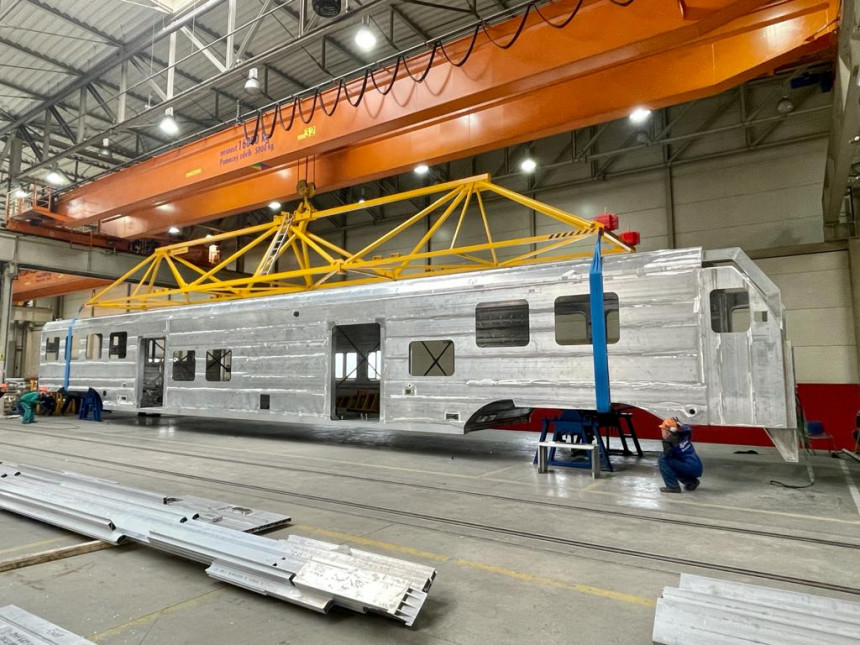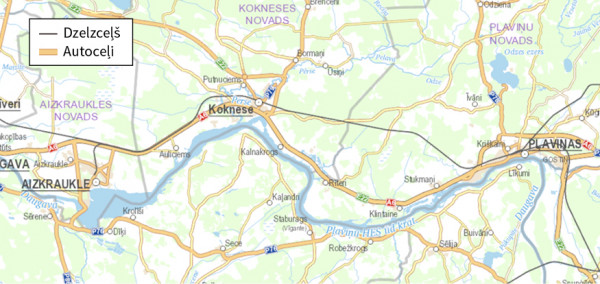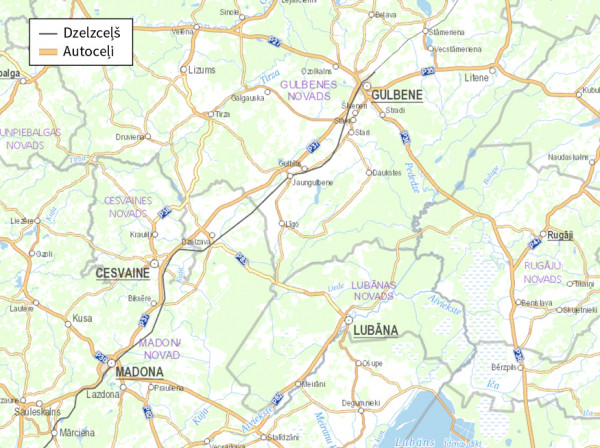There will be good trains on the rails and a good life near the rails

The photos sent from the Czech Republic about the construction of electric trains ordered by Latvia finally justify the slogan “train is the backbone of public transport” that was invented more than ten years ago.
The slogan was created because the European Union already in the 2007-2014 planning period had promised Latvia money to order new electric and diesel trains. It was first posted by Neatkarīgā on October 9, 2012, quoting Artis Birkmanis, the then Chairman of the Board of the state-owned company Pasažieru vilciens (PV). Shortly before, Andris Lubāns, Director of the Land Transport Department of the Ministry of Transport, had told Latvijas Avīze that the activities of the Ministry and its subordinate institutions had been aimed at accustoming people to such a slogan for several years. It was really a difficult task to be done in Latvia, whose restoration of independence was associated by people with the right to transfer from public transport to private cars and from trains to cars. However, at the time, it turned out to be a false alarm. The most plausible explanation for the breakdown of train procurement was the inability of officials to agree on the acceptance and distribution of bribes offered by train builders. In addition to such a basic version, there was the interest of the same and other politicians and officials in maintaining cash flow from the state budget to road builders and bus carriers. Finally, the reluctance of the administration to annoy people by forcing them to adapt to new modes of transport or relocate. While there are no new trains, the country is experimenting with a small number of people.
This can be described as vigorous or demonstrative action, replacing bus routes with train routes since the end of last year. The extension of the Riga-Daugavpils express route to Krāslava meant the closure of four Daugavpils-Krāslava bus routes. However, the severity of the changes is reduced by the fact that these trips were not made every day. A similar maneuver has been performed since June 1, when a train was introduced from Riga to Madona and on weekends also to Gulbene. Consequently, four trips on the route Riga-Madona-Lubāna were closed. Looking at the map of Latvia confirms that such modifications deprive people of access to public transport in at least some places. For example, the highway and the railway with points in Riga and Madona in the section between Lielvārde and Koknese (see the picture) both intertwine and move away by five or more kilometers. This means 5-10 km to the nearest railway station, which is not located at the nearest point to people's homes and cannot be reached in a straight line across fields, forests, ditches, etc. In ancient times, people used horses to cover such distances, now - personal vehicles. If such is now needed to get to the train that has formally replaced the bus with a stop close to people's homes, then they hardly need public transport anymore. Without any reservations, the map shows that the movement of trains in Madona does not help those who went from Riga to Lubāna or back.


Now, nothing should disrupt the fact that next year new electric trains should appear in Latvia, with which buses to Gulbene or Daugavpils, as well as to Liepāja or Ventspils cannot be replaced. After the failure to use the money gifted by the EU, it took almost 10 years for various Latvian governments to raise money to order such trains. Latvia has committed to pay 125.9 million euros to the Czechs next year with the start of train delivery and another 44.3 and 40.7 million euros (in the total amount of 211 million) in the next two years. Next year, the movement of new trains must become intensive, but then the intensity of bus traffic in the Lielrīga region, the real borders of which are demarcated by the location of electrified railway sections, will have to be reduced to maintain the total amount of subsidies granted for passenger transport.
Already next year, a large number of people may find that the bus stop they are accustomed to has either been officially abolished along with the bus route or has become a prop, servicing one bus a day.
The courage to deprive people of buses must come from investing in new trains. In this way, the state would be able to recover at least part of the investment, both through ticket sales and by shifting grants from private carriers to its own PV. Bearing in mind the bill of 211 million to be paid next year, this year less than 39 million euros have been allocated for bus intercity traffic and 12 million for a targeted grant to nine cities for free transportation for the disabled. PV will receive 10.3 million for general expenses and 7.7 million for payment to Latvijas dzelzceļš for the use of its tracks. The total state grants for rail maintenance this year are planned to amount to 23.9 million euros. The peculiarity of this year is the opportunity for the representatives of all sectors to request and receive additional funding from unforeseen events, the total amount of which in Latvia now reaches billions of euros.
However, the total amount of all the expenditure listed here and still possible for the railways is modest compared to the fact that a "record season in road construction has just begun" (in Latvian) with a budget of 325 million euros per year (for a construction season). The financial predominance of roads reflects the public demand and the inertia of the distribution of budget money, although it does not correspond to the official version of rail as a priority for public transport. The right to a record budget for roads has been granted to Latvia with a warning that it is a one-time reward for compliance with the Covid rules, and not the beginning of polishing roads year after year.
Covid-19 is an excuse to preach the EU's "green course" even louder, the consequences of which would be the complete abandonment of oil products in transport. Latvia failed to wrap its request to the European Commission in phrases about the overall environmental benefits of rail transport to let them allow us to use a part of the amount promised to Latvia to pay for the electrification of the railway line, which Latvia was unable to use again, for the purchase of new diesel trains.
The EU's "green course" is most categorically demanding the abandonment of oil products in light and personal vehicles. The tone of the requirements is not a guarantee that the requirements will be met. The slogan put forward more than 10 years ago about the railway as the backbone of transport in Latvia coexisted peacefully with the reduction of the volume of passenger railway transport accordingly to the rate of writing off electric trains and diesel trains inherited from the Soviet era. In their place, the new electric trains are coming, but they have not yet arrived. The EU may be more successful in eradicating current transport than in replacing it with electric or hydrogen vehicles. In that case, those who live near the current electric train route and Rail Baltica would have a better chance of using any means of transport in Latvia at all.
